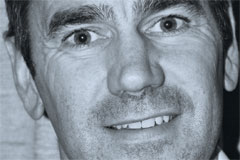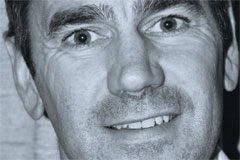We need a discussion about natural death


I was once hauled out of afternoon surgery to drive round to the house of a patient in his 93rd year who had been found dead on the floor by his carer. What was the rush I hear you ask? Well, he had two burly paramedics attempting to resuscitate him, and they could not stop unless a doctor attended.
This was before the days of widespread use of DNAR forms, but coincided with an increasing interest in the legal issues surrounding death and who should be allowed to die in peace.
More recently I was asked to visit a nursing home one evening where an elderly patient had been admitted that day for palliative care. The reason for the visit? Not for any clinical deterioration, medication need or opportunity to discuss with the family, but just simply to complete a DNAR form as this had not been transferred from the hospital from where he had come.
You can imagine the conversation: ‘Hello Mr Jones, nice to meet you and sorry you are feeling a bit peaky. Have you seen this red bordered form before…?’
Let’s get patients to take control of their destiny
You can’t help feeling that we may have got things a bit wrong. There is no doubt that discussions around death and dying are really important, so let’s get patients to take control of their destiny. I suggest an overhaul of the system.
As a starter for 10, what about this: given the poor success rate, should we run an opt-in service for DNAR (a bit like organ donation at the moment)? Say from the age of 70, maybe 80? Nobody will have resuscitation attempted after this age unless they have completed an online process and consented to it. (I’m sure Capita could get this up and running in no time.)
For those that find this difficult – no problem, we all love an enhanced service, so people could have specific discussions with their GP and the relevant template completed, probably involving some sort of MDT/risk reduction/docobo/avoiding admission/death type meeting, with quarterly reports to be rubberstamped by the CCG and the top and bottom 5% of practices being singled out for interrogation.
This would put patients in control and promote a public debate, ensuring that the pros, cons and success rates of resuscitation would be widely understood – meaning everyone’s a winner.
For those cynics out there, we could even put the idea out to the public for a vote – a referendum if you will – where the options are: ‘Yes, I would like to be allowed to die a natural death after I reach three score years and 10,’ or ‘Yes, I would like to be allowed to die a natural death after I reach three score years and 10, but only after somebody has jumped up and down on my chest.’
What do you think? If nothing else, a fresh referendum would keep many people happy and no doubt stimulate refreshing and insightful discourse such as: ‘I would like to die but still hold on to some of the benefits of life, like breathing,’ or ‘Death means death, there can be no going back’.
I’m off for lie down while you discuss it – I sleep quite heavily, but I’m not 70 yet…
Dr Richard Cook is a GP partner in Hurstpierpoint, West Sussex. You can follow him on Twitter @drmoderate
Visit Pulse Reference for details on 140 symptoms, including easily searchable symptoms and categories, offering you a free platform to check symptoms and receive potential diagnoses during consultations.









